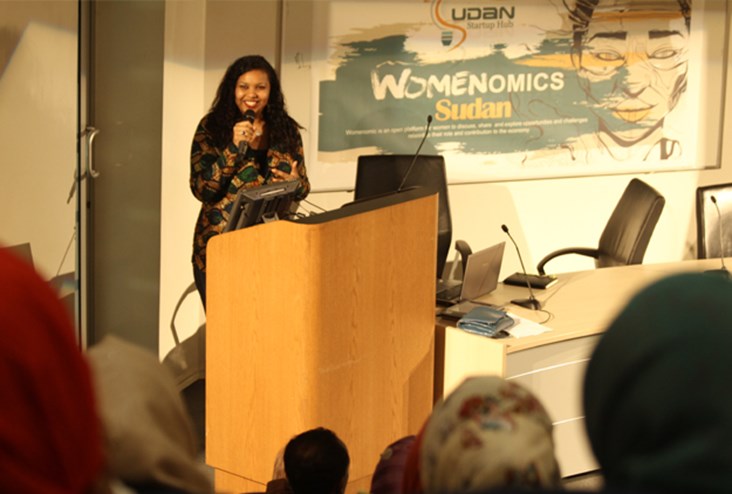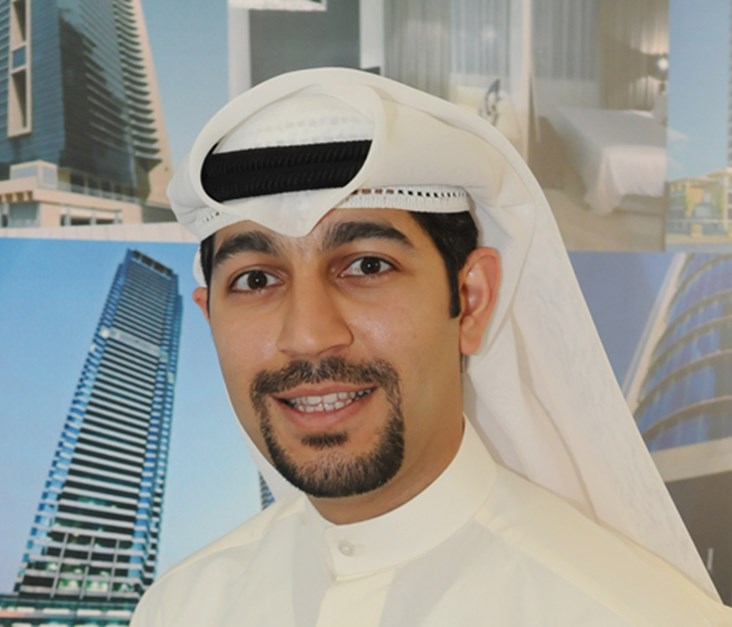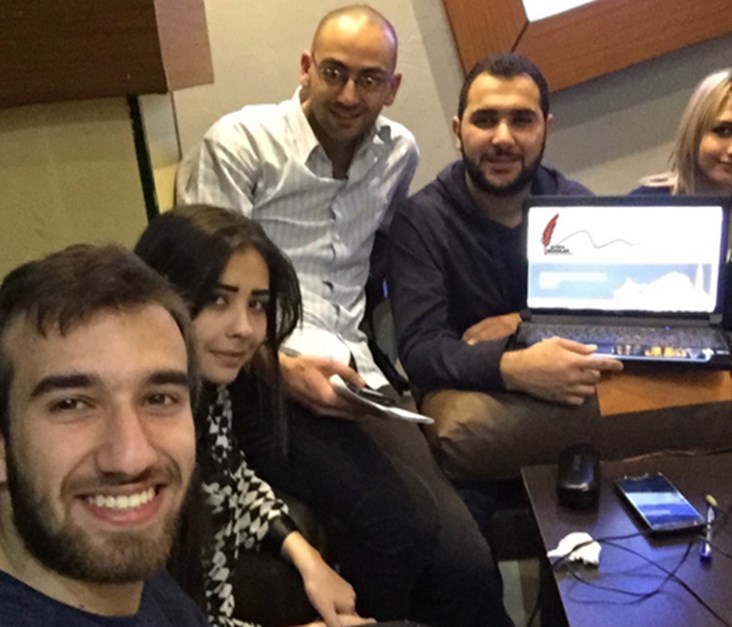Andariya Wants to Help Put the Sudans on the Digital Map
Back
ArabNet recently had the pleasure to discover Andariya, a digital cultural magazine and community run by women entrepreneurs in – wait for it – the Sudans!
If your first reaction is “What? Sudans?” it is totally understandable. After all, most MENA and GCC media rarely mention the Sudans’ digital economy and culture, so there are a few misconceptions to clear. (It took this writer a couple of seconds to wrap his mind around the term “the Sudans”).
Now you can better understand why Andariya’s founders, Omnia Shawkat and Salma Amin, decided to combine their efforts and build their platform.
“Andariya was born out of our need to fill the glaring gap of under representation of Sudanese and South Sudanese presence in culture, arts and edutainment online. Thus, we took it upon ourselves to inform people of what’s happening, educate the community and eventually inspire,” said Shawkat.
The two entrepreneurs also advocate of women’s rights in the workplace and society at large. Shawkat was a speaker at the recent Womenomics event to discuss how the new generation can evolve professionally beyond the traditional workplace, blending creativity with business success, market share, and independance,
Sudanese Women’s Small Victories
On paper, women’s situation in the Sudans is better than in other countries. Women’s education began in 1903, and the first women’s college class was accepted in 1930. Today, female graduates outnumber their male counterparts in national undergraduate programs.
Sudanese women earned the right to equal wages in the mid-seventies. They occupy mostly entry and mid-management positions in public and private sector institutions. The rising number of Sudanese young women holding advanced degrees is forcing employers to acknowledge them and provide them with more mid-management positions. Still, traditional gender roles prevent them from holding senior positions.
“It is fair to say that both genders are challenged by the lack of jobs and career development opportunities, as a result, many Sudanese seek employment outside their country. [But] Sudanese young women are discouraged from seeking employment abroad, in most families, regardless of how beneficial this opportunity could be for them and their families by association,” said Amin.
Therefore, women are usually the ones left behind to face a stagnant job market, low wages, and the obvious glass ceiling.
“The glass ceiling is slowly but surely being pushed higher. What is needed now is more role models in government, business and civil society – which is already happening with female civil society leaders, government appointees and business owners,” said Shawkat.
Women are the main pillars of the informal sectors, especially when it comes to traditional occupations. Their spirit of self-sufficiency and entrepreneurship is the driving force behind initiatives like Shawkat and Amin’s Andariya. “It’s up to us to stand in the front lines and not be shy about getting there,” said Shawkat.
Andariya – One of the Voices of a Generation
Andariya began with a conversation between Shawkat and Amin about the potential for information and opinion dissemination in the digital age.
“We were particularly irked by the immense gap in independent, gender and technology focused, artful digital representation of the Sudans on the web. Acknowledging that both Sudan and South Sudan have deep troubles on various fronts, we wanted to do something that redefines how people see, feel about and engage on the Sudans on the internet,” said Amin.
The two friends (initially based in California and Doha) got to work remotely bringing together talented, passionate individuals with diverse backgrounds and ideas to start building multiple digital platforms of edutainment, technology, contemporary and gender issues.
Their target audience is a broad demographic of socially conscious, tech savvy, information hungry, and internationally exposed communities tuned in to affairs from the Sudans and beyond. In other words, they want to play an active role in making Sudan part of the global web community.
Their offering consists of information. “We’re accumulating digital contemporary cultural data on issues from Sudan and South Sudan,” said Amin.
Building their website and its content is an ongoing journey. “We still tweak things as we get feedback from our peers and supporters. We hope to end up with a desktop and mobile friendly website that is easy to navigate and access,” said Shawkat.
So far, the founders have sourced investments in the platform through their own efforts. They run on a lean model, and concentrate on remunerating freelance projects instead of building up infrastructure for the time being. “Having said that, we were able to analyze the market niche for such an online platform, and deduced that it could sustain itself in the future,” said Amin.
Sudan’s Emerging Digital Economy
Mobile phones are widely used in Sudan, with an estimated 27 million users, of which there are approximately 10 million mobile internet users (one third of the country). According to a small scale poll by Andariya, most of these users rely on Facebook and Whatsapp to contact distant friends and relatives, read news, and engage in gossip and cultural discussions.
Due to sanctions and the US embargo on digital products in Sudan, the country’s digital economy still lags behind other countries’. “A consistent challenge is mainstreaming the digital economy and getting people to trust and use online shopping and payment as an efficient tool,” said Shawkat.
Amin and Shawkat named a few initiatives like the NileSooq marketplace and ElBiruni (an Amazon-style website that sells and ships Sudanese books) that managed to establish themselves in the market despite the challenges they faced.
Nor is Andariya the only player in the digital culture and arts publishing industry. Two other platforms currently exist and are roughly at the same stage of development: The Niles and 500wordsmag and the newly inaugurated XpoMag.
For now, the platform is looking for more local partnerships with like-minded individuals and institutions. The network continues to grow as more people are captured by the sense of community that shares ownership of Andariya and its strategy for expansion.
Amin said they are in the planning phase of developing a magazine app, revamping their website to be more mobile-friendly, and increasing their social media presence and influence. “This will ensure we are there for our audiences, whenever they want and however they like to consume our content,” she said.
The platform’s content currently includes text, video and images, but it plans to add in-house produced videos in 2016.
Shawkat said they realized that people have become increasingly accustomed to receiving data, and not really interacting with digital content. “We plan to drive this interaction by using polls, surveys, competitions and other tools to engage our users and know their preferences and interests on a micro-scale,” she said.
Latest Business
Intelligence Report














